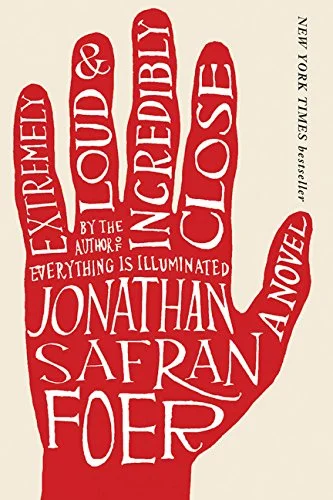Getting a Read on Interabang Books: My Year of Rest and Relaxation
My Year of Rest and Relaxation by Ottessa Moshfegh
It’s my firm belief that when a person recommends a book to me, they’re handing me an inside look at their soul. In this series, “Getting a Read,” I try to uncover truth about books and their recommenders.
This new spin-off of Getting a Read takes a closer look at bookstores. For each review, I ask the booksellers what book their store might recommend if it woke up and could suddenly recommend books. I’m pleased to report that each time I ask this question, I’m met with smiles, excitement, and loads of creative answers.
THE RECOMMENDER
Interabang Books, famous in the Dallas area for its total destruction by a tornado last month. They’ve spent the last several weeks scrambling to find space for their events and to reopen. Just in time for the holiday, they announced their relocation to a new space and Dallas is so excited to have them back in operation!
HOW TO READ IT
Curled up under a blanket, of course, though I’d recommend staying away from pills or alcohol as you read it. This book will demand all of your attention to keep up with the meanderings of the narrator’s semi-conscious retelling of the meanderings of her semi-conscious mind.
REVIEW: My Year of Rest and Relaxation by Ottessa Moshfegh
Belying its sleepy plot, this book popped off the shelves even before I approached the staff of Interabang with my question. I’d already had success with the question once before, but this experience cemented the value of this new section of the blog. My conversation went something like this:
“If your store suddenly woke up and began recommending books, what would it recommend first?” I asked the manager on duty. He looked at me first with a bit of confusion before a grin spread over his face.
“Well, I have to say I’m not quite sure. We do sell a lot of these,” he said pointing me to the wall of local best sellers in their store. “But I don’t think that quite answers your question, does it?” I smiled back at him, hoping I was encouraging in my silence. He turned and led me toward the front of the store.
I noticed as he half-heartedly pointed out a few more titles that a bookseller was hovering at the edge of our conversation. He seemed eager to jump in, but not at all sure he should. Finally, the manager noticed him as well. Bursting with excitement, the bookseller held a bright book in his hand. “I didn’t mean to interrupt, but I totally have the answer for you,” he said, and his manager chuckled.
“That’s the book I was just about to grab,” he said.
The bookseller held a compact, hardback book with a neon pink spine. “This book above all others to me embodies the spirit of our store. The author, Ottessa Moshfegh, came to do an event here and we all connected deeply with her and her book. She had us in stitches, and it was a wonderful experience—we haven’t stopped talking about it since.”
I couldn’t quit grinning. This was indeed the perfect book. These booksellers knew the soul of their store well. I bought the book immediately, not knowing when I’d get to it, but satisfied that I had a great post in the works for some future date.
Months passed. I wrote other reviews, life happened, and then, out of nowhere, an F3 tornado took a 25-mile devil’s jaunt straight through the heart of Dallas. If you’ve read other posts, you’ll know I’ve been plugging Interabang for awhile. That’s because after the storm their store looked like this:
Interabang Books post-storm. Photocredit: Ian Webber
Dallas book lovers were heartbroken at this news. Independent bookstores struggle to stay afloat anyway, never mind dealing with lost inventory and customers from having your storefront blown away. I thought immediately about this unfinished post and wondered how it would be crafted in light of this storm.
Over the last month, the story of how Interabang reacted to this tremendous loss and how they recovered from it has been covered by media and told by those who know the heart of things much better than I do. I’ll turn my attention now to the review of the book and let you hunt down the details of the story of the store if you choose.
Drugs, melancholy, and languid stupor are the primary hallmarks of this darkly humorous book from the acclaimed Ottessa Moshfegh. In it, a woman (our unnamed narrator), consumed by apathy or grief or something else, decides to opt-out of life in favor of not-death.
The central character and narrator is a self-described “somnulist” or “somniac” who elects to spend a full year in a drugged state. Her intent is to take a break from life after her parents’ deaths within 6 weeks of each other. Though she seemed to find life unbearable with her parents, she most certainly finds life unbearable without them. My favorite, also darkly humorous, review on this book was from the New York Times. In it, the reviewer compared the narrator to freelance writers noting that they and the character share a penchant for wondering: why bother getting out of bed at all? Moshfegh’s “heroine” figures if she wakes up in June at the end of the year without an interest in continuing, she’ll just end the whole thing there.
Engaging the help of a yellow-book psychiatrist, she drugs herself with all kinds of fictional and real pills. They induce a kind of stupor in which she loses days and memories, waking up to spoiled Thai food on her counter and bills from forgotten outings to bodegas. In the last few months of the journey, she endeavors to be awake only 40 hours in a 3 month period, and puts her mostly-stupefied body on loan to a performance artist in exchange for the care and keeping of her affairs.
Her one friend throughout this story is introduced quickly in the book: Reva, her bulimic best friend from college. The introduction of this character marked the first point that I identified what I believe the treasure at the heart of this book is—Moshfegh’s gift with prose. She says of Reva, “She was an only child, a gym rat, had a blotchy red birthmark on her neck in the shape of Florida, a gum chewing habit that gave her TMJ and breath that reeked of cinnamon and green apple candy.” This character popped off the page for me immediately with this description, and it was other moments of delicious prose like this that kept me connected with this half-asleep narrative throughout.
Throughout this book, it’s her connection to Reva that keeps the narrator semi-engaged with her world, and it’s her connection to Reva that draws the book to a close. I’m no stranger to the desire to withdraw and retreat from the world. In a way, reading a story where that desire was drawn out to its inevitable conclusion was for me almost Brechtian; it allowed me to laugh aloud at the mechanics that undergird the dark impulses of the subconscious and served as a reminder that total withdrawal is no gift. It’s in connection to others, and not the kind of connection that happens when our trash touches our neighbors’ trash in the trash chute, that we find meaning and awaken to our true selves.
If you’re looking for a book with action, or even plot, I’d suggest passing on My Year of Rest and Relaxation. It belongs to that elusive-yet-pervasive genre of Literary Fiction that always feels hard to grasp, and which Interabang is known for. The best definition for this genre I’ve ever come across, and truthfully I couldn’t credit the source if I tried, was one that described it as primarily concerned with the internal with a downturn at the end of the book. This description fits well in the case of this book, though the ending is less of a trend downward than a tremendous drop-off, to my mind. Though remarked on by other reviewers as rather obvious to anyone who is “half-awake,” the last scene surprised me and left me to wonder if our central character’s quest to recover in a year of sleep was anything but another iteration of the inescapably depressing cycle of her life.
But if you’re looking for a clever, dark, surprising, and somewhat repulsive novel that will help you connect to the creative minds that are behind the spirit of Interabang, definitely give this book a try.
THE RECOMMENDER IN REVIEW
These persistent booksellers have managed to reopen this totally decimated store in a brand new location in less than one month—just in time for the holidays. What a tremendous achievement they’ve carried out in the face of such adversity! What a contrast they make to the apathy and ambivalence so prevalent in this book! I think it’s safe to say that the heart of this store is strong, if, in the face of real or literary darkness, its booksellers laugh and march steadily onward.
I look forward to returning to Interabang in their new location to ask my question again for part two of this post. If there was ever a time to see if a soul changes when subjected to adversity, this moment just might hold the answer.
WHERE TO FIND IT
Interabang Books, where else? Find them online or at their new location. Details on their website!




